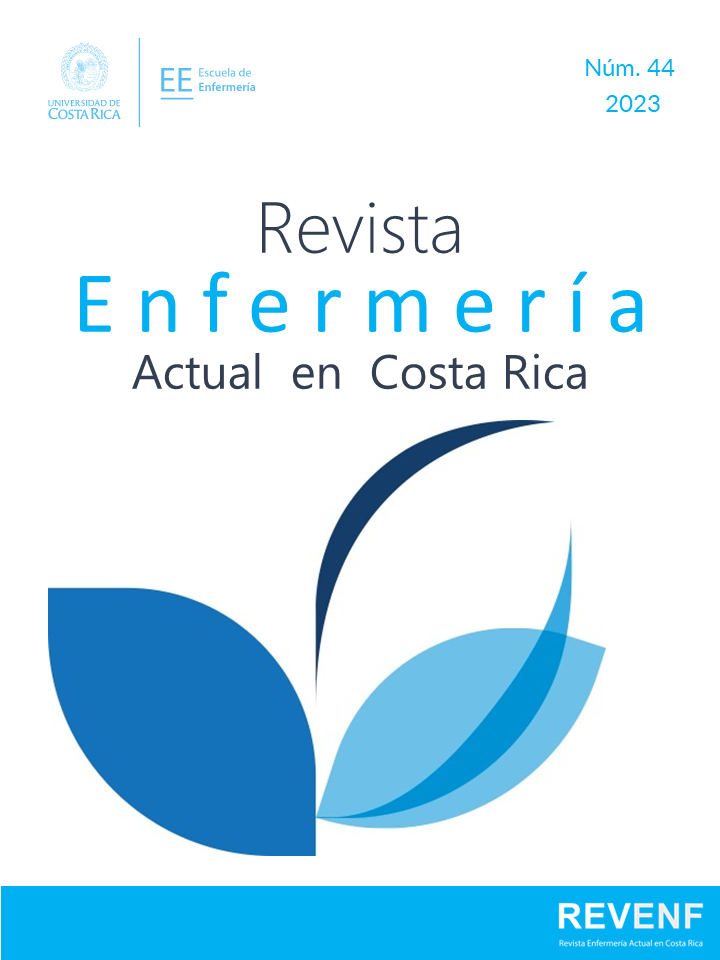Abstract
Introduction: the human body expresses the injuries resulting from psychic workloads by the occupational diseases, mainly in health workers, who are directly linked to the patients.
Objective: to analyze the scientific evidence available in the literature about the use of digital resources to promote the mental health of health workers who will be then considered for this study (all who had had direct contact with patients).
Method: this is a systematic review protocol that follows the Cochrane manual and that will use the PICOS anagram for Patient, Intervention, Comparator, Outcomes and Study design during the development of the research. The following platforms will be consulted: Medical Literature Analysis and Retrieval System Online, Cumulative Index to Nursing and Allied Health Literature, Latin American and Caribbean Literature in Health Sciences, a database produced by the American Psychological Association, Elsevier's database, Cochrane Central Register of Controlled Trials (a foundation of Clarivate Analytics).
Results: The results will be presented in narrative form, with graphs, tables and charts.
Conclusion: the research protocol guarantees the methodological rigor of the review process. In this way, it is expected to find evidence of interventions through digital means that promote the mental health of the worker.
References
Silva T, Tavares C, da Fonseca P, Muniz M, de Paiva L, Augusto V. Promoting the mental health of health professionals. R. Pesq. Cuid. Fundam. Online. 2015; 7(4), 3496-3505. doi: http://dx.doi.org/10.9789/2175-5361.2015.v7i4.3496-3505
World Health Organization. Mental Health and Substance Use. 2021. https://www.who.int/teams/mental-health-and-substance-use/mental-health-in-the-workplace
Aguiar MF, Maciel RHM de O. Psicologia e promoção da saúde do trabalhador: estudo sobre as práticas de psicólogos no Ceará. Psicol. Argum. 2015; 33(81): 266-281. https://pesquisa.bvsalud.org/portal/resource/pt/lil-797238
Howarth A, Quesada J, Silva J, Judycki S, Mills PR. The impact of digital health interventions on health-related outcomes in the workplace: A systematic review. Digital health. 2018; 4, 2055207618770861. doi: https://doi.org/10.1177/2055207618770861
Barra DCC, Paim SMS, Sasso GTMD, Colla G. Methods for developing mobile apps in health: an integrative review of the literature. Texto Contexto – Enferm. 2017; 26(4), e2260017. doi: https://doi.org/10.1590/0104-07072017002260017
Carolan S, Harris PR, Cavanagh K. Improving Employee Well-Being and Effectiveness: Systematic Review and Meta-Analysis of Web-Based Psychological Interventions Delivered in the Workplace. J Med Internet Res. 2017; 19(7), e271. doi: https://doi.org/10.2196/jmir.7583
Stratton E, Lampit A, Choi I, Calvo RA, Harvey SB, Glozier N. Effectiveness of eHealth interventions for reducing mental health conditions in employees: A systematic review and meta-analysis. PloS ONE. 2017; 12(12), e0189904. doi: https://doi.org/10.1371/journal.pone.0189904
Gil IM de A, Costa PJ dos S, Cardoso DFB, Parola VS de O, Almeida M de L F de, Apóstolo JLA. Eficácia da reminiscência na cognição, sintomas depressivos e qualidade de vida em idosos: protocolo de revisão sistemática. Revista de Enfermagem Referência. 2018; 6(16), 155-160. doi: https://doi.org/10.12707/RIV17055
Shamseer L, Moher D., Clarke M, Ghersi D, Liberati A, Petticrew M. et al. PRISMA-P Group. Preferred reporting items for systematic review and meta-analysis protocols (PRISMA-P) 2015: elaboration and explanation. BMJ. 2015; 349, g7647. doi: 10.1136/bmj.g7647
Pacheco RL, Latorraca COC, Martimbianco ALC, Pachito DV, Riera R. (2018) PROSPERO: base de registro de protocolos de revisões sistemáticas. Estudo descritivo. Diagn Tratamento. 2018; 23(3), 101–104. http://docs.bvsalud.org/biblioref/2019/01/969297/rdt_v23n3_101-104.pdf
Pantaleão PF, Veiga HMS. Welfare at work: a systematic review of national literature in the last decade. HOLOS. 2019; 5, 1-24. doi: https://doi.org/10.15628/holos.2019.7570
Barbosa FT, Lira AB, Oliveira Neto OB de, Santos LL, Santos IO, Barbosa LT, et al. Tutorial for performing systematic review and meta-analysis with interventional anesthesia studies. Rev Brasileira Anestesiol. 2019; 69(3), 299-306. doi: https://dx.doi.org/10.1016/j.bjane.2019.03.003
Pereira MG, Galvão TF. Etapas de busca e seleção de artigos em revisões sistemáticas da literatura. Epidemiol. Serv. Saúde. 2014; 23(2), 369-371. doi: https://doi.org/10.5123/S1679-49742014000200019
Galvão TF, Pansani T de SA, Harrad D. (2015). Principais itens para relatar Revisões sistemáticas e Meta-análises: A recomendação PRISMA. Epidemiol. Serv. Saúde. 2015; 24(2), 335-342. doi: https://doi.org/10.5123/S1679-49742015000200017
Carvalho APV, Silva V, Grande JA. Avaliação do risco de viés de ensaios clínicos randomizados pela ferramenta da colaboração Cochrane. Diagn Tratamento. 2013; 18(1), 38–44. http://files.bvs.br/upload/S/1413-9979/2013/v18n1/a3444.pdf
Falavigna M. Qualidade da evidência em Ensaios Clínicos I: Cochrane Risk of Bias Tool. Htanalyze. 2017. https://www.htanalyze.com/blog/cochrane_rob/
Moher D, Shamseer L, Clarke M, Ghersi D, Liberati A, Petticrew M, et al. PRISMA-P Group. Preferred reporting items for systematic review and meta-analysis protocols (PRISMA-P) 2015 statement. Systematic reviews. 2015; 4(1), 1. doi: https://doi.org/10.1186/2046-4053-4-1
Gopalakrishna G, Mustafa RA, Davenport C, Scholten RJ, Hyde C, Brozek J, et al. Applying Grading of Recommendations Assessment, Development and Evaluation (GRADE) to diagnostic tests was challenging but doable. J Clin Epidemiol. 2014; 67(7), 760–768. doi: https://doi.org/10.1016/j.jclinepi.2014.01.006
Guyatt GH, Oxman AD, Vist GE, Kunz R, Falck-Ytter Y, Alonso-Coello P, et al. GRADE Working Group. GRADE: an emerging consensus on rating quality of evidence and strength of recommendations. BMJ. 2008; 336(7650), 924–926. doi: https://doi.org/10.1136/bmj.39489.470347.AD
Gonçalves HA, Nascimento MBC, Nascimento KCS. Systematic Review and Meta-analysis. Atas CIAIQ2015. Invest Quali Educação. 2015; 2, 386–389. https://proceedings.ciaiq.org/index.php/ciaiq2015/article/view/281/277
Comments

This work is licensed under a Creative Commons Attribution-NonCommercial-ShareAlike 4.0 International License.
Copyright (c) 2023 João Paulo Belini Jacques, Mestre, Evelin Daiane Gabriel Pinhatti, Mestre, Patricia Aroni, Doutora, Helenize Ferreira Lima Leachi, Renata Perfeito Ribeiro


